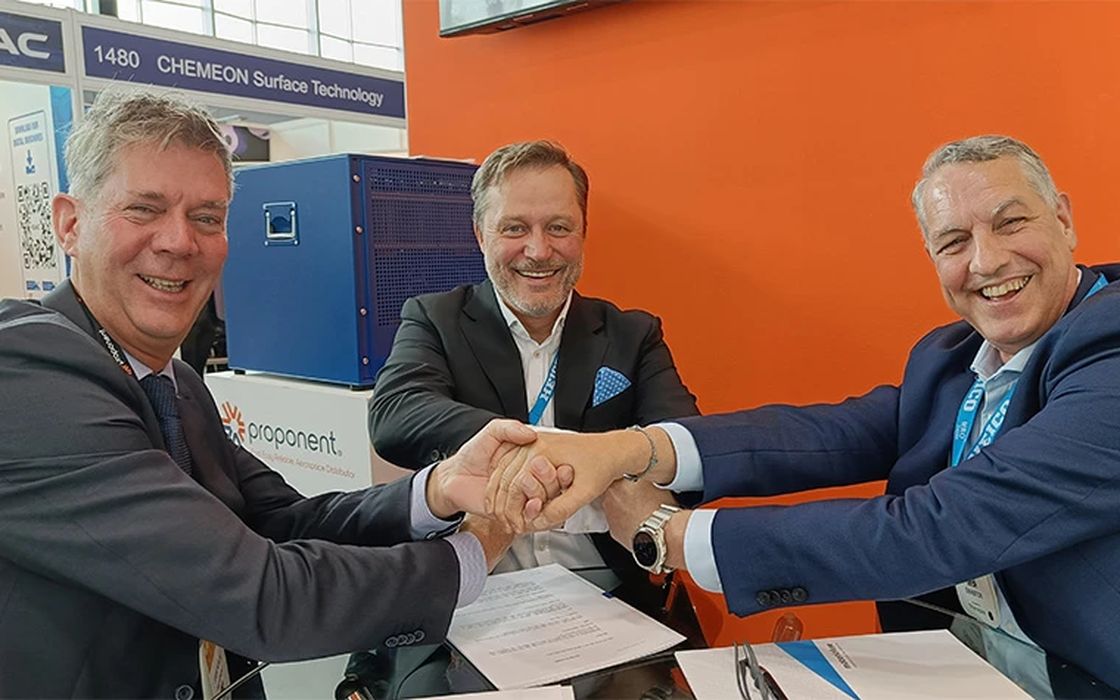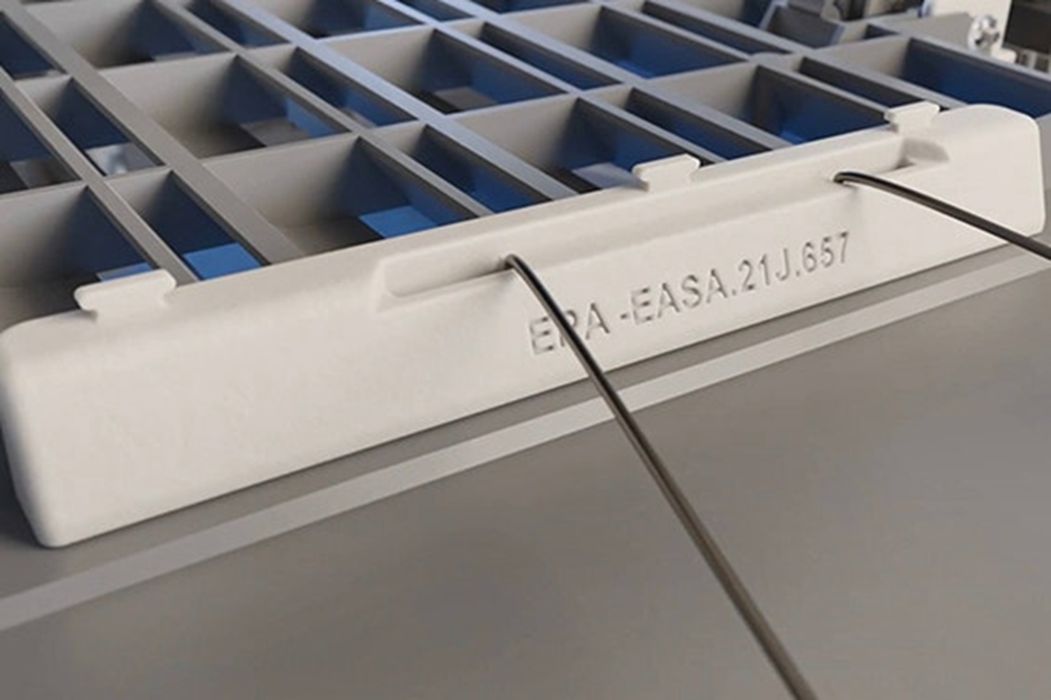
Charles R. Goulding and Mellissa McIntyre discuss the partnership between Materialise, Stirling Dynamics and Proponent.
In the fast-paced world of aviation, where every minute counts, the ability to quickly repair or replace aircraft components is crucial. Historically, the airline industry has faced numerous challenges related to spare parts availability, lead times, and inventory management. These issues often lead to prolonged aircraft downtime, increased maintenance costs, and ultimately, customer dissatisfaction. However, the advent of 3D printing technology has opened up new possibilities for addressing these long-standing problems.
Recently, a groundbreaking partnership has emerged, aiming to revolutionize the way aircraft cabin parts are designed, produced, and distributed. In December of 2023, Materialise NV, Stirling Dynamics, and Proponent announced a signed letter of intent for providing certified cabin solutions for aircraft. Materialise is a global 3D printing solutions and services provider, Proponent is the largest independent aerospace distributor, and Stirling Dynamics is an EASA 21.J-certified Aerospace Design Organization. The partnership aims to leverage additive manufacturing to support the aerospace aftermarket with the design, production, and distribution of certified 3D-printed cabin solutions. Stirling Dynamics, being an aerospace-approved Design Organization (DOA), will develop improved, certified designs for 3D-printed interior cabin parts and will be able to provide complete aircraft documentation and instructions. The combination of Stirling Dynamics’ design capabilities, Materialise’s certified production, and Proponent’s distribution network creates a unique end-to-end service for aircraft modification and repairs.
Materialise NV
Materialise has been a supplier to various aerospace clients including OEMs and MROs. Since 2021, they have been leading manufacturers of 3D printed solutions for aircraft. In 2021, Airbus qualified Materialise to produce parts using laser sintering. This would have been the second additive manufacturing technology approved to be flight ready. Several years prior, Airbus and Materialise partnered to use FDM technology on the A350 system.
Stirling Dynamics
Stirling Dynamics, of Stoke Gifford, England, an Expleo company, is an advanced engineering company with a lot of experience in the aircraft and marine industries. The company has been a leading designer of 3D printed solutions for aircraft cabin applications. Some examples include their line of smart cabin parts or repair solutions which includes a 3D Printed B737 Panel Repair Kit, 3D printed Arm Rest Cap and more. The solutions were designed to be compliant and customizable.

In 2023, Materialise worked with Expleo, an EASA design organization to develop a smart solution for the Boeing B737 Dado panel or the decompression panel. The dado panel is located at the bottom of the aircraft cabin wall and is designed to equalize pressure between the cabin and affected areas during sudden pressure changes. The panel’s latches and pins were prone to frequent breakage, leading to grounded planes and costly replacements of entire panels. Expleo and Materialise combined their expertise to develop a more sustainable solution using 3D printing, resulting in significant cost savings. Instead of simply replacing broken parts, Expleo designed new elements that not only fix the problem but also strengthen the panel and reduce the risk of further breakages. Materialise optimized the design files to 3D print the parts together as a repair kit in their certified facility, meeting stringent structural reliability and safety requirements for certification. This collaboration showcases the potential of additive manufacturing in the aerospace industry, particularly in developing innovative, cost-effective solutions for spare parts that not only replace but also improve upon the original design.
Proponent
Proponent is a leading independent distributor of aircraft parts headquartered in Brea, California. The company provides traditional distribution services to airlines, MROs and OEMs, as well as innovative inventory management solutions. Back in 2021, Proponent partnered with Materialise to enhance the aerospace aftermarket supply chains. The intent of the partnership at the time was to provide OEMs with more access to the benefits of 3D Printing.
The Research & Development Tax Credit
The now permanent Research and Development (R&D) Tax Credit is available for companies developing new or improved products, processes and/or software.
3D printing can help boost a company’s R&D Tax Credits. Wages for technical employees creating, testing and revising 3D printed prototypes can be included as a percentage of eligible time spent for the R&D Tax Credit. Similarly, when used as a method of improving a process, time spent integrating 3D printing hardware and software counts as an eligible activity. Lastly, when used for modeling and preproduction, the costs of filaments consumed during the development process may also be recovered.
Whether it is used for creating and testing prototypes or for final production, 3D printing is a great indicator that R&D Credit eligible activities are taking place. Companies implementing this technology at any point should consider taking advantage of R&D Tax Credits.
Conclusion
The potential impact of this partnership on the airline industry is significant. With 3D printing technology, aircraft operators can benefit from shorter lead times, reduced inventory costs, and the ability to produce parts on demand. Moreover, the design freedom offered by additive manufacturing enables the creation of optimized, lightweight components that can improve aircraft performance and fuel efficiency.
As the aviation industry continues to face challenges in the post-pandemic world, the adoption of cutting-edge technologies like 3D printing becomes increasingly crucial. The letter of intent signed by Materialise, Proponent, and Stirling Dynamics represents a major step forward in this direction, paving the way for a more resilient, efficient, and sustainable future for the airline industry.
